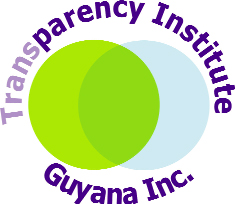Since the turn of the twenty-first century, Guyana has subscribed to two significant anti-corruption conventions: the Inter-American Convention against Corruption; and the United Nations Convention against Corruption (UNCAC), ratified in 2000 and 2008 respectively.
 Our government has committed the nation to working towards a corrupt-free society and adherence to international best practices and standards. In doing so, it has reflected the hopes of all Guyanese citizens to live in a country where corruption will not be an issue; where there is no abuse of power; and where democratic values and the rule of law fairly and justly govern society. Given the recent surge in concerns from various quarters of Guyanese society about corruption – the opposition, citizens, the media, and private sector – it would be useful to frame the discourse with a sound understanding of our commitments and obligations under these two conventions.
Our government has committed the nation to working towards a corrupt-free society and adherence to international best practices and standards. In doing so, it has reflected the hopes of all Guyanese citizens to live in a country where corruption will not be an issue; where there is no abuse of power; and where democratic values and the rule of law fairly and justly govern society. Given the recent surge in concerns from various quarters of Guyanese society about corruption – the opposition, citizens, the media, and private sector – it would be useful to frame the discourse with a sound understanding of our commitments and obligations under these two conventions.
UNCAC
UNCAC is a fairly new instrument that was ratified by the United Nations General Assembly in 2003. It is a bold and robust convention of standards, rules and measures aimed at eradicating corruption. The convention has been described as a “global response to a global problem”. It is groundbreaking in that it is both preventative and punitive. It also actively seeks to go after stolen property (asset recovery) and promotes cooperation amongst states and institutions as a means of addressing corruption. One of UNCAC’s key features is the importance and value that it places on citizen and civil society participation.
UNCAC is particularly well placed to address grand corruption that has been described as “corruption that pervades the highest levels of government, engendering major abuses of power”. It also refers to situations where external interests illegally distort the highest levels of a political system for private ends.
The convention focuses on the following key areas:
Preventative measures: These require member states to create oversight bodies, improve procurement and financial management practices, and introduce measures to prevent money laundering;
Criminalization and law enforcement: Parties to UNCAC are obligated to criminalize bribery and the embezzlement of public funds, and the conversion or transfer of proceeds;
International cooperation: This involves member states supporting each other especially in gathering and transferring information about evidence of corrupt activities;
Asset recovery: This is a fundamental principle of UNCAC that encourages governments to adapt their civil and criminal law to facilitate the tracing, freezing, forfeiting and returning of funds and other assets obtained through corrupt activities; and
Technical assistance: Member states are encouraged to assist each other in terms of technical assistance to comply with UNCAC provisions.
UNCAC has a combination of provisions that are mandatory, “strongly encouraged” and optional. The following are some mandatory requirements that the UNCAC places on member states:
Ensure the existence of a body or bodies to prevent corruption;
Create a public procurement system based on transparency, competition and objective selection criteria;
Enhance transparency in public administration by such measures as publishing information and simplifying procedures;
Prevent corruption among members of the judiciary;
Take measures to enhance the accounting and auditing standards in the private sector;
Make sure penalties for corrupt acts reflect the gravity of the offence;
Promote the participation of civil society in the fight against corruption;
Implement a comprehensive regulatory scheme to prevent money laundering;
Establish procedures to freeze, seize and confiscate the proceeds of corrupt acts; and
Take measures to protect whistleblowers.
Inter-American Convention against Corruption
The Inter-American Convention against Corruption was developed by the Organisation of American States based on a conviction that “corruption undermines the legitimacy of public institutions and strikes at society, moral order and justice, as well as at the comprehensive development of peoples”. The convention has the following two objectives:
To promote and strengthen the development of the mechanisms needed to prevent, detect, punish and eradicate corruption; and
To promote, facilitate and regulate cooperation among the state parties to ensure the effectiveness of measures and actions to prevent, detect, punish and eradicate corruption in the performance of public functions and acts of corruption specifically related to such performance.
The convention provides for state parties to introduce preventative measures including standards for the conduct of public office, systems for registering the income, assets and liabilities of persons who perform public functions, protection for whistleblowers and revenue collection and control systems that deter corruption. Like UNCAC, the convention recognises a key role for civil society in the battle against corruption.
In order to ensure the institutionalisation of the anti-corruption measures, the convention calls on state parties to adopt legislation to establish as criminal offences under their domestic law various acts of corruption including solicitation, bribery and the fraudulent use and concealment of property derived from such acts.
Conclusion
Guyana has taken a significant step by becoming party to the two anti-corruption conventions outlined in this article. In doing so, it has undertaken obligations and expectations for the enactment of the standards and rules that are central to both conventions. In the case of UNCAC, some of these are mandatory.
Guyanese should improve their awareness and understanding of the content of both conventions since if fully implemented, they will play a significant role in our national efforts to tackle corruption.
For more information on UNCAC, you can visit the official website – www.uncac.org. Information on the Latin-American Convention on Corruption is also available on www.oas.org.
